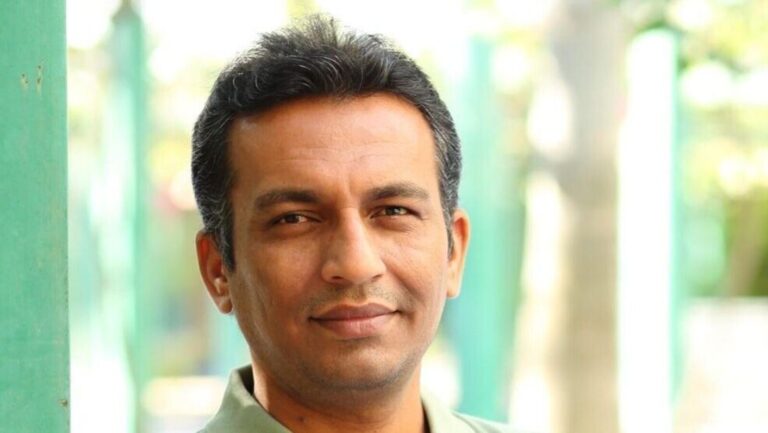The Bengaluru-based company is banking on its five-month-old micro drama app Quick TV, hoping a national surge in short-form consumption will lure back advertisers, co-founder and chief financial officer Manohar Singh Charan said.
“Micro drama content lets you sell premium OTT-style inventory to a more engaged audience while fetching a higher price (for ads),” Charan said in an interview. “We are seeing a lot more advertisers interested in placing ads within this content.” He declined to comment on the investments planned in micro dramas.
Five-minute fix
A micro drama is a serialized video series with short episodes of one to five minutes in vertical format, designed for quick, mobile-first consumption. Sharechat’s Quick TV app has had 15 million downloads since launch, Charan said, but did not share details of its paid subscriber base.
Within micro drama, regional content curated for tier-2 and tier-3 audiences will be its top priorities. Nearly 35 million users are already watching as many as 200 million episodes per day on Sharechat and its short-video platform Moj, he noted.
Sharechat currently runs two models—freemium (mix of free and paid) content under Quick TV and 100% free content under Sharechat and Moj. The company expects ad revenue will drive Quick TV.
The micro drama focus comes as ShareChat’s parent Mohalla Tech Pvt. Ltd saw its ad revenue decline 8% to ₹290 crore in FY25, down from ₹315 crore the previous year. Advertising is the company’s second-largest revenue driver after livestreaming, accounting for 40% of total income. In FY25, Sharechat’s operating income touched ₹723 crore, marginally up from ₹718 crore the previous year.
Charan attributed the ad revenue decline largely to the 28% Goods and Services Tax (GST) imposed on real-money gaming (RMG) apps in October 2023. The tax created a significant financial burden that curbed advertisers’ performance marketing spending.
Gaming hit
India has banned real money gaming, an industry that had prospered to become one of the biggest advertisers in recent years, with leading companies such as Dream11, Games24x7 and Mobile Premier League (MPL) splurging on sponsorships and advertising. The ban is likely to erase advertising revenue of nearly ₹10,000 crore, according to industry stakeholders. However, Sharechat’s Singh noted that the firm had significantly cut its exposure to real-money gaming platforms after the 2023 tax hike.
The micro drama strategy is key to ShareChat’s goal of hitting 30% revenue growth in FY26. The company already crossed a ₹1,000 crore annualized revenue rate (ARR) by the end of the first half of the current fiscal year.
The move to monetize micro dramas aligns with the booming digital ad market, which surpassed the ₹1 trillion mark in March 2025, with digital channels accounting for nearly half of all spending, Crisil Intelligence estimates.
The short-form video and micro drama market is clocking a $50 million monthly run rate, according to consulting firm Redseer. With more than 300 million users already hooked and a flood of new platforms chasing the format, analysts expect the space to expand into an $8-12 billion opportunity by 2030, Mint reported last month.
Hard act
However, scaling micro dramas is highly dependent on the sustained quality of fresh content amid rising competition, said Siddharth Jhawar, country manager of AI-driven ad tech company Moloco.
“There are two pressures that are likely to come in the way of micro drama success: One, rising competition will increase the cost of producing content. Two, any potential regulatory changes with UPI autopay could hurt subscription growth,” Jhawar noted.
In India, Quick TV is pitted against other microdrama apps such as Kuku TV, Story TV, ReelSaga and Amazon MiniTV.
Even with a strong launch, the wave of micro drama apps producing content in regional languages face the challenge of stalling at a certain scale, making content refreshment a perpetual necessity for growth, Jhawar noted.
Bright side
On the bright side, paid online content has grown, with a fourth of its 600 million active OTT users holding quarterly or annual subscriptions to the top streaming platforms, according to a September study by marketing agency Ormax Media. China’s micro drama segment, considered the world’s largest, thrives on paid subscriptions with 60% of its 830 million subscribers being paid users in FY25, per estimates by market research firm Media Partners Asia.
Sharechat’s Charan acknowledges the challenges.
“All marketers know where the attention is shifting. But they are still trying to figure out how to latch on to the move and measure success. Anybody who will be moving first will be going against the tide. They will have to build their case to prove that this is worth it. Because in branding, it’s very difficult to measure ROI [return on investment],” he noted.
Images are for reference only.Images and contents gathered automatic from google or 3rd party sources.All rights on the images and contents are with their legal original owners.

